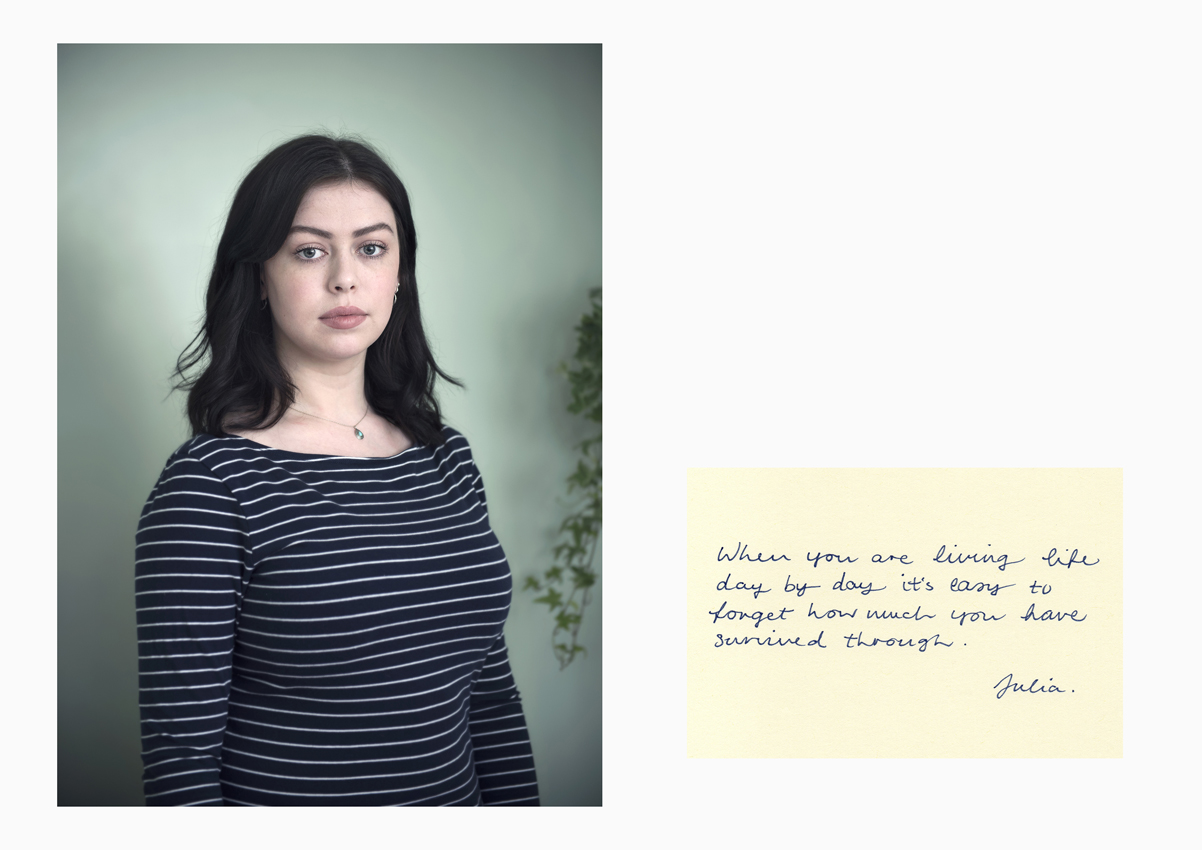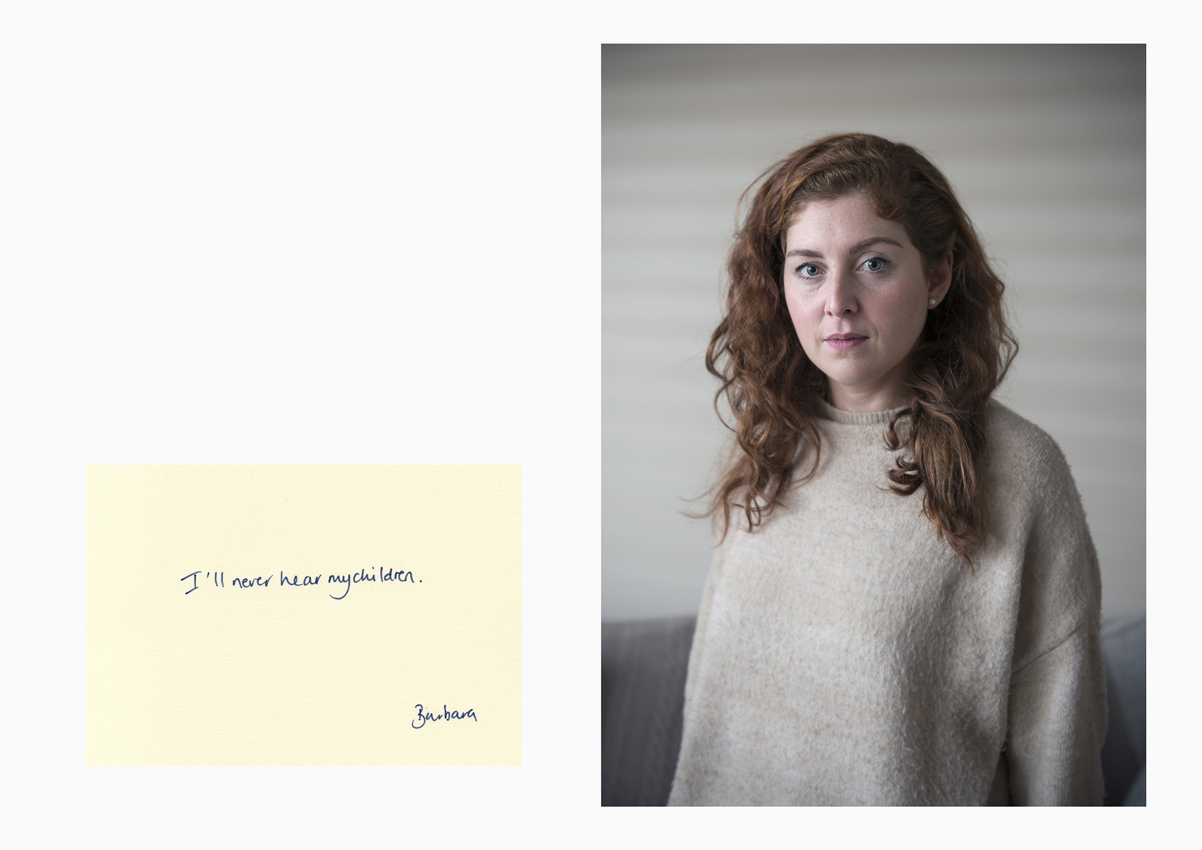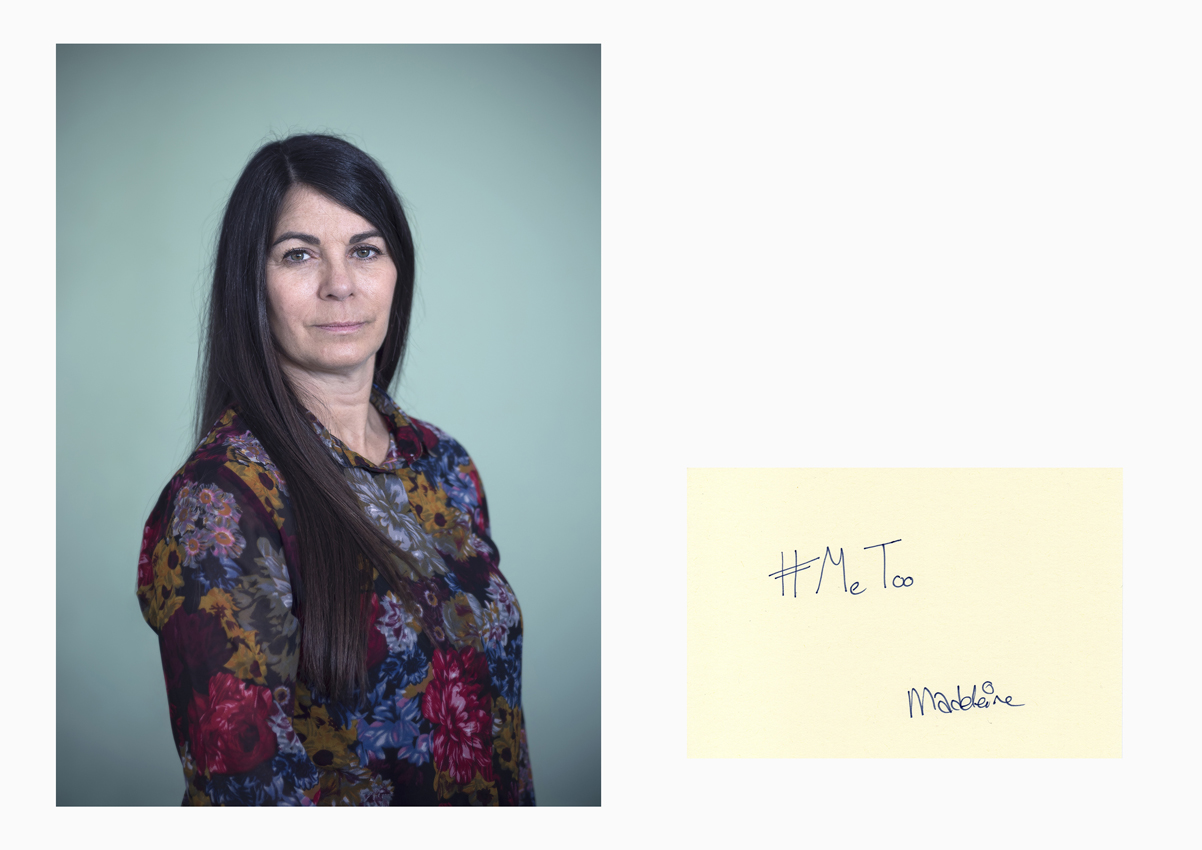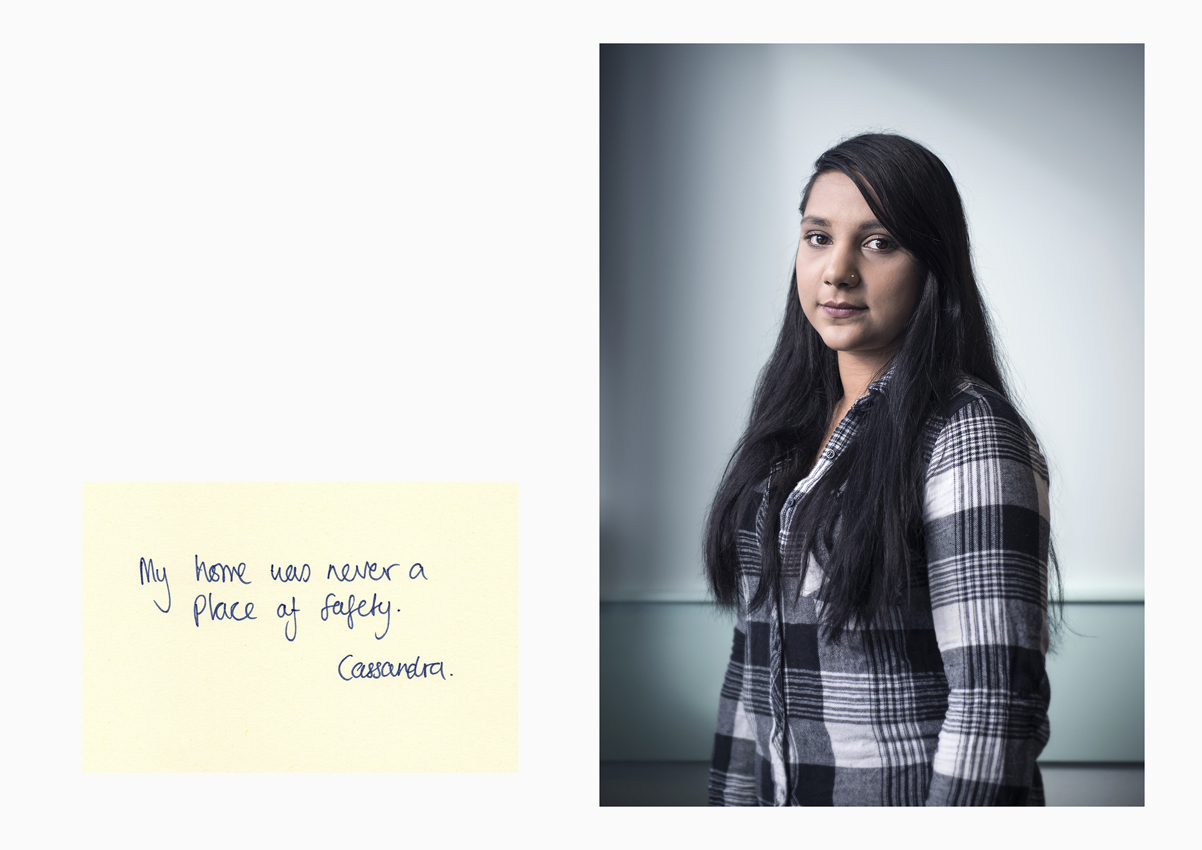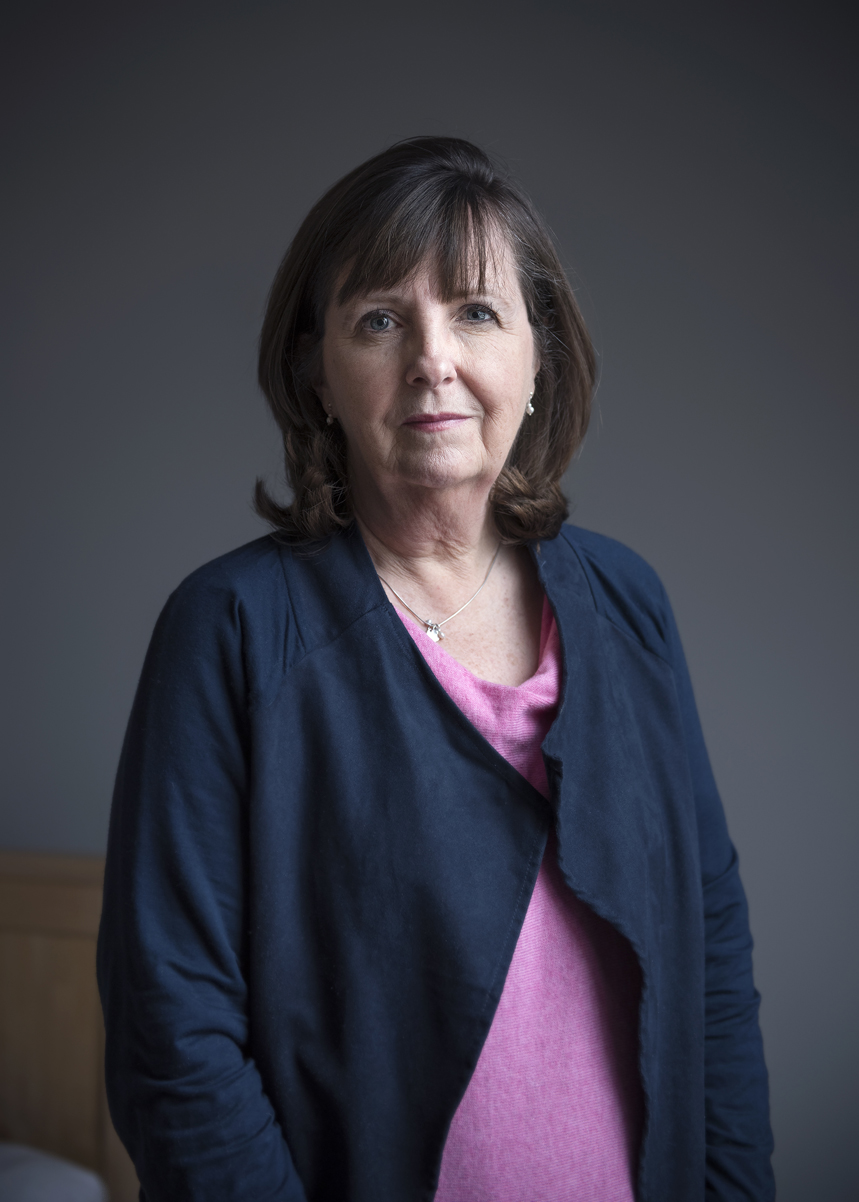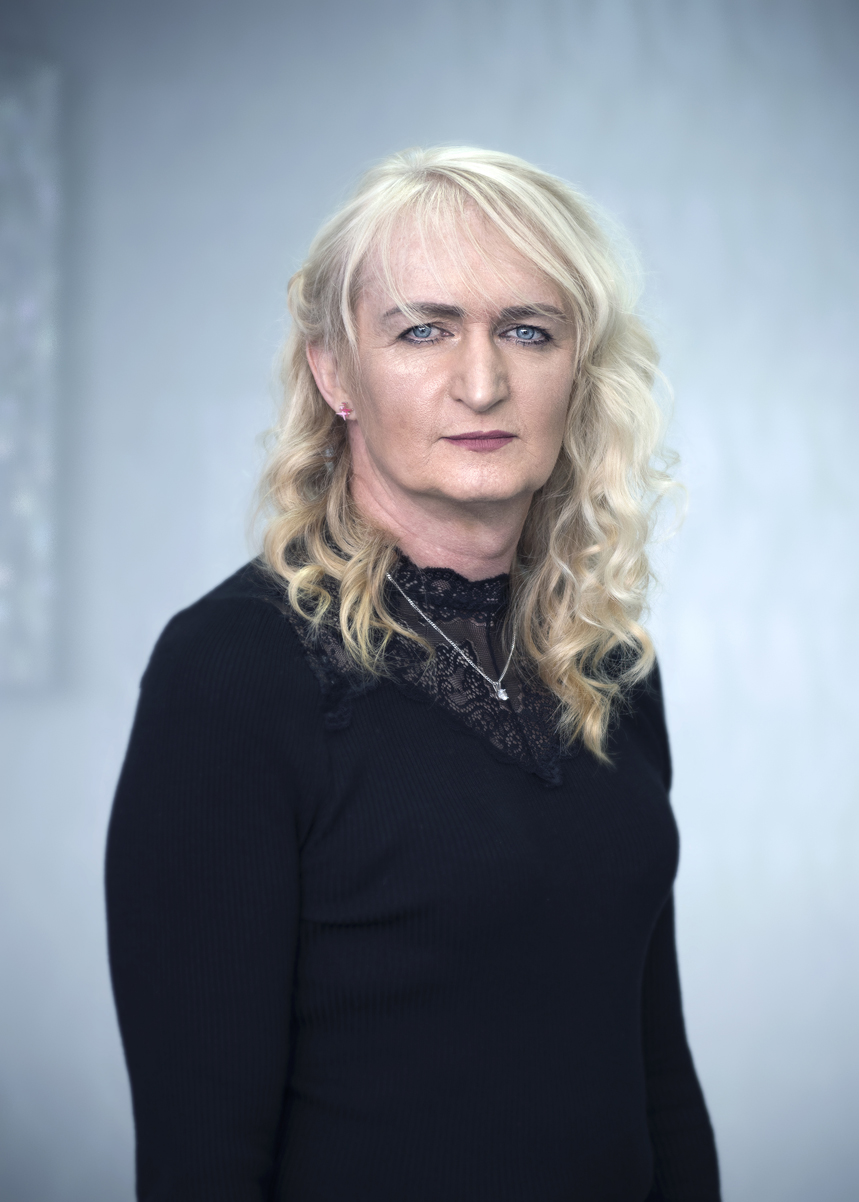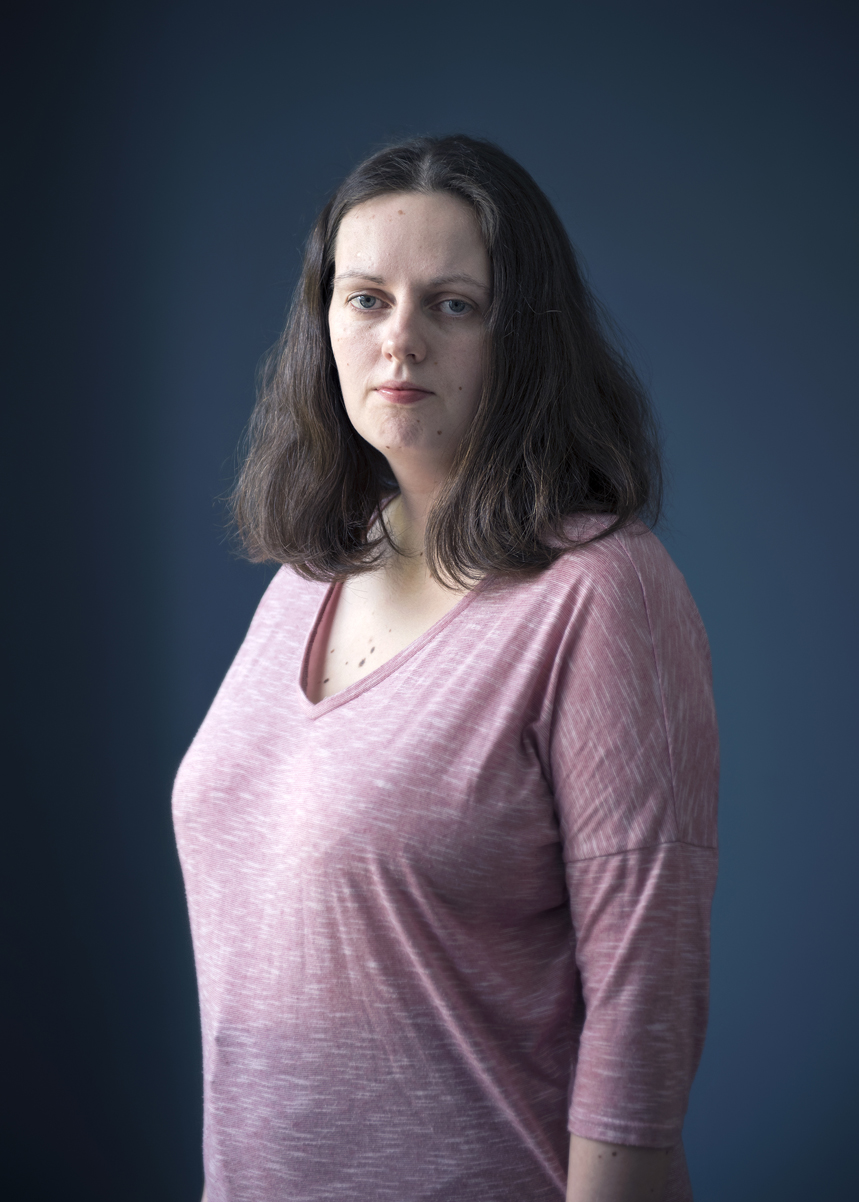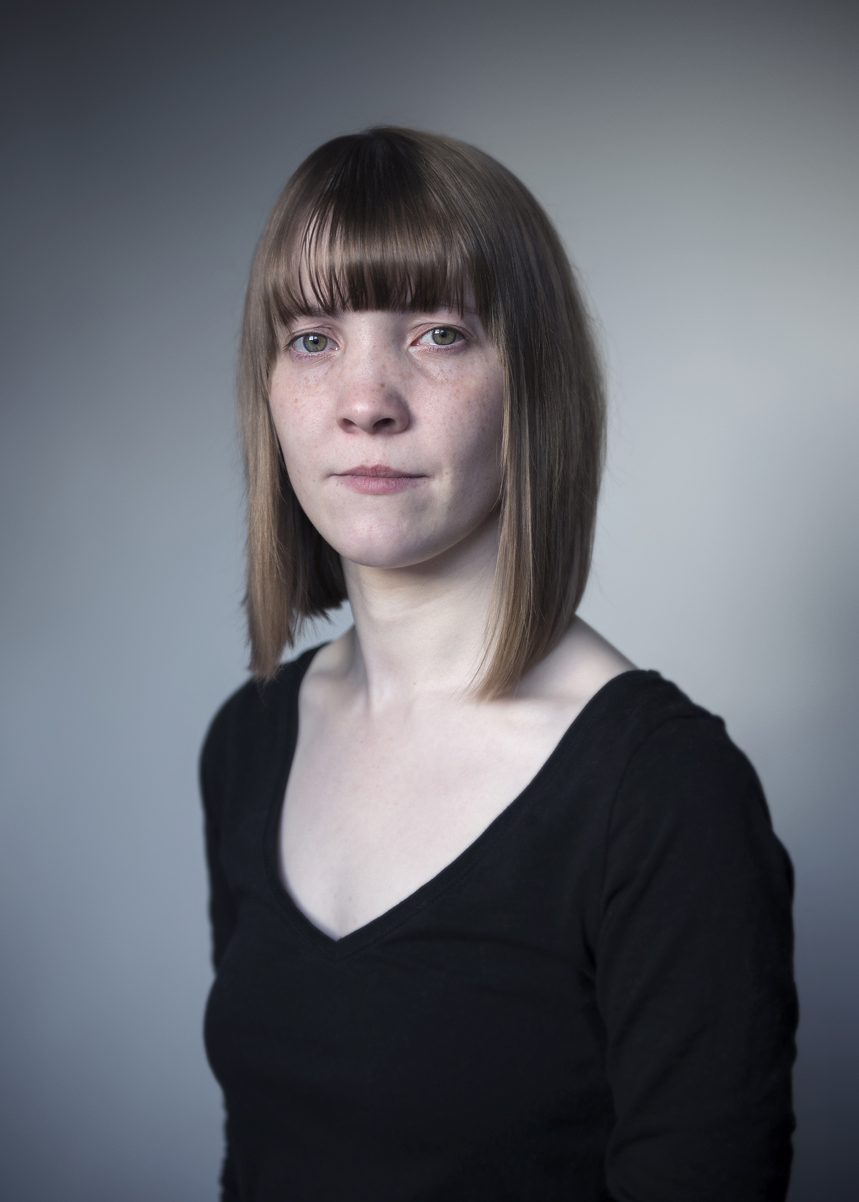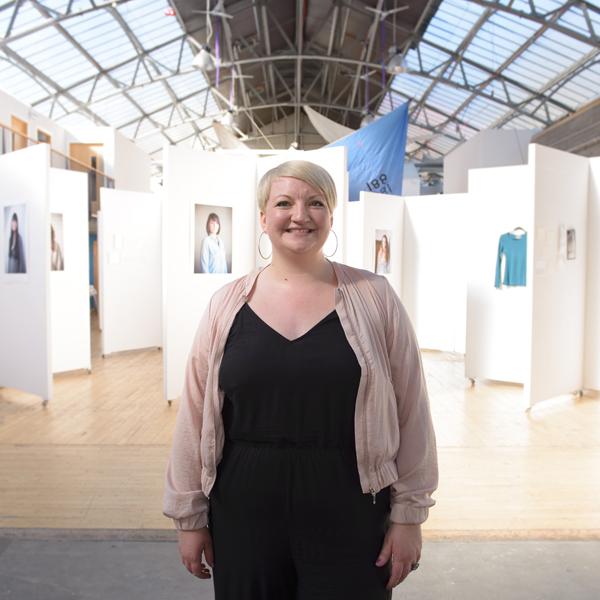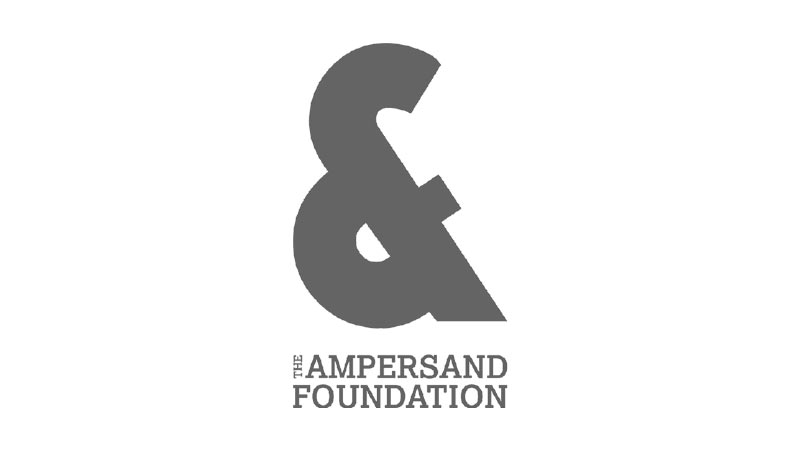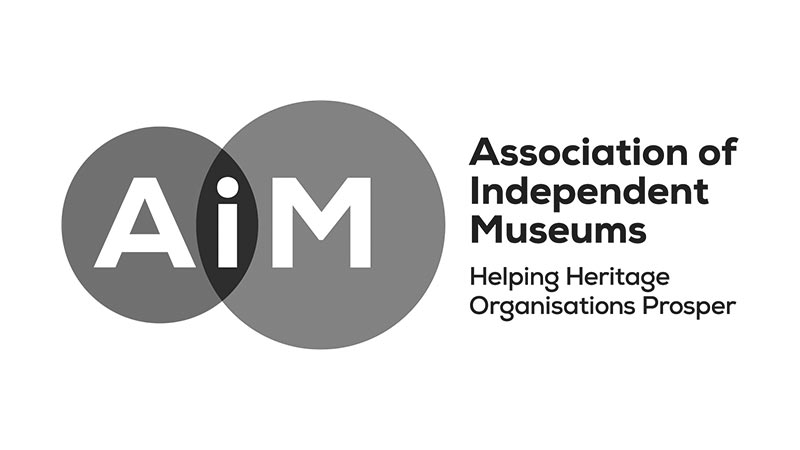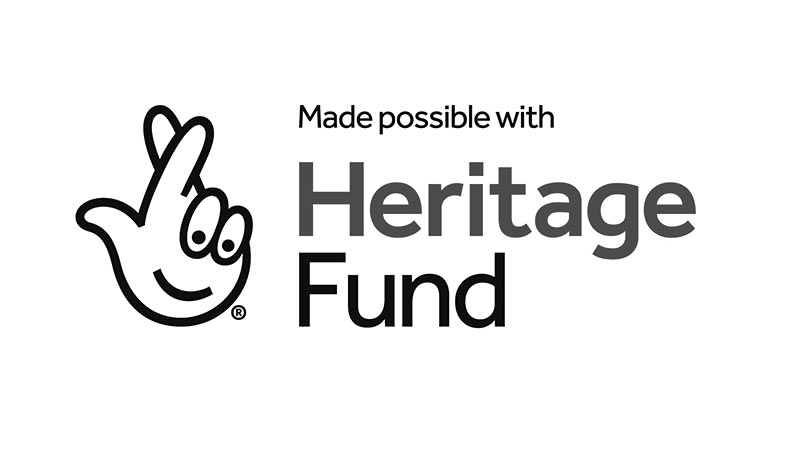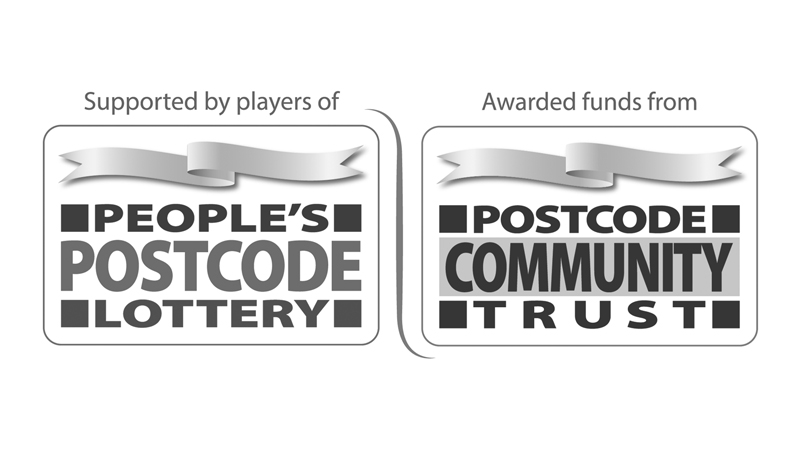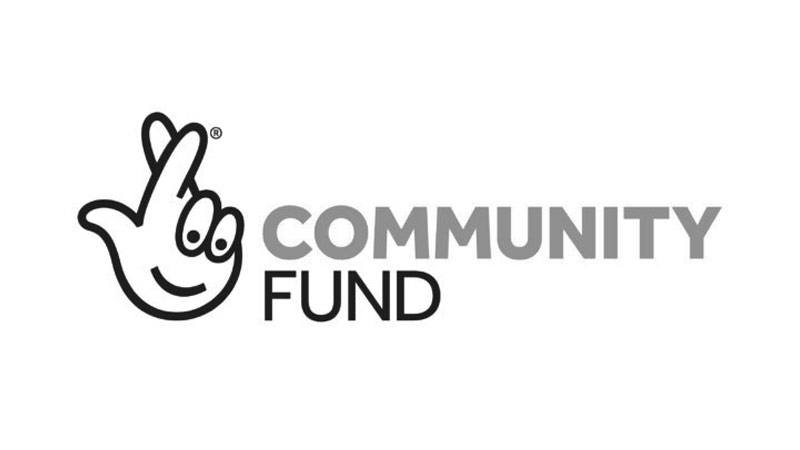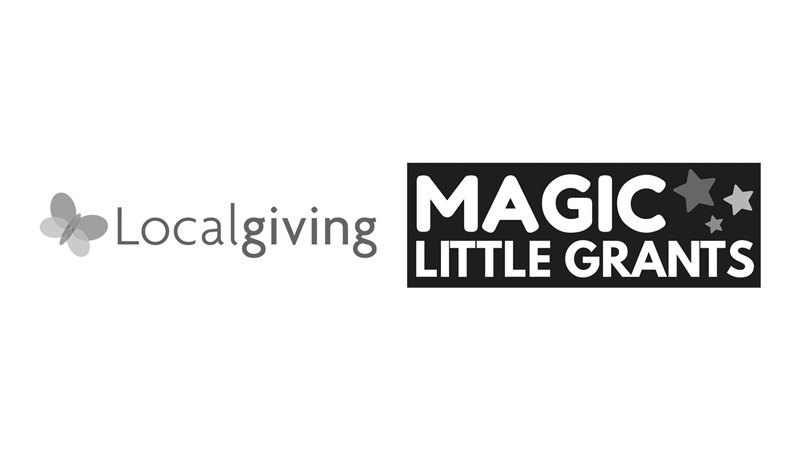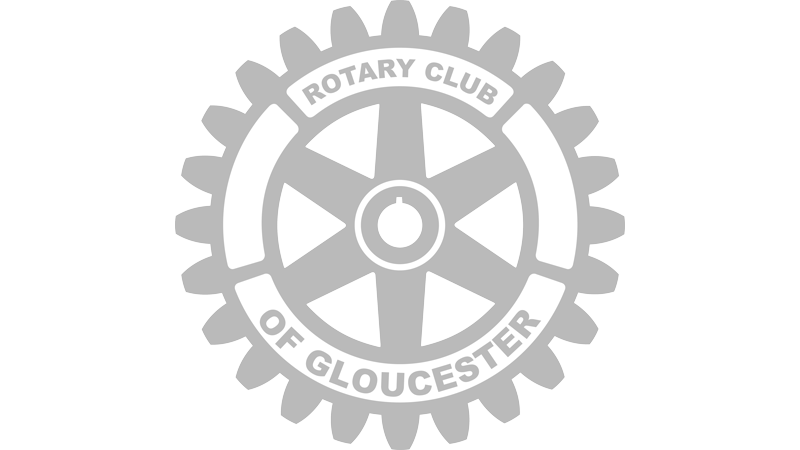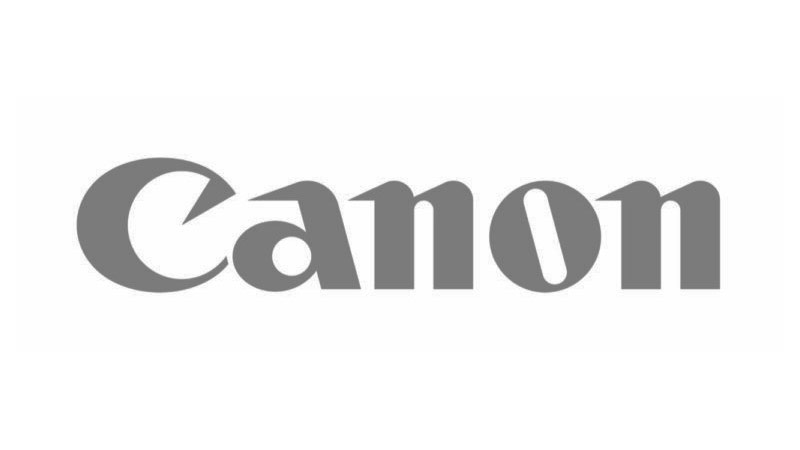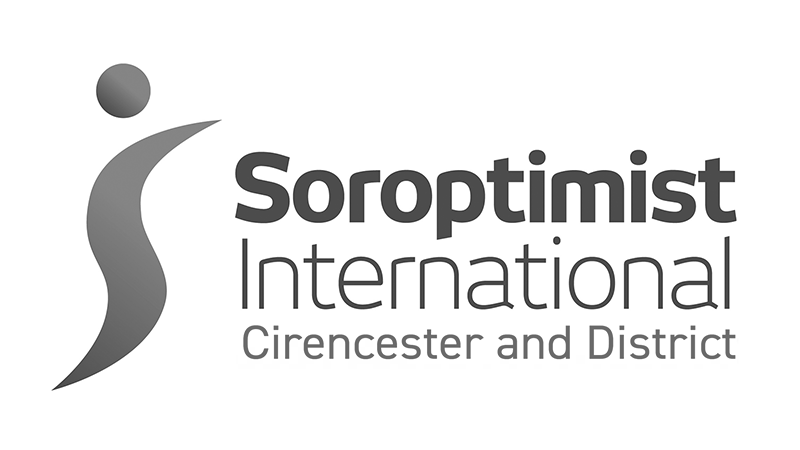Nevertheless, She Persisted
Picking up a camera saved my life. It gave me a reason to leave the house when all I wanted to do was hide. I quickly realised the power of photography; how it could impact my own life as well as society. My most recent series, Nevertheless, She Persisted, was inspired by two women who gave me some lovely feedback on portraits I’d taken of them. One was going through chemotherapy for breast cancer. She’d put on weight due to the steroids, lost her hair, part of her identity, and felt like she’d aged a lot in a short space of time. She said I made her feel beautiful. Days later, I photographed a teenage girl. She is deaf and has Tourettes, but was being bullied for having red hair. She used to always wear it up to minimise the impact of its presence. I asked her to take it down. She also has the most incredible piercing blue eyes. I showed her and her mum the back of the camera – they saw her the way I saw her – young, beautiful, on the cusp of change. Her mum contacted me later that day to say that her daughter had been walking on air since the shoot, that it had given her a much needed confidence boost. I noticed that in the following weeks, she started wearing her hair down and embracing her beauty. It was wonderful to know I’d helped her achieve that.
So, after these shoots, I thought about how I could use my skills as a photographer to help more women. After then taking part in the Edinburgh Women’s March in January 2017, the idea was cemented in my mind – I had to contribute to the sisterhood.
While the initial idea for the project was based on appearance, once I started researching issues women face – baby loss, domestic abuse, eating, rape, sexual identity – they didn’t fit under this umbrella of beauty/appearance. It then became about being a platform for women’s stories, a safe space. It was my hope that the women taking part would, in some way, be able to heal. Whether that was by being able to see their beauty through someone else’s eyes, or raising awareness of an issue important to them. From the initial seed of an idea, to completing and exhibiting the work, the project consumed 18 months of my life. I photographed 25 women, but met many more who shared their stories with me. I felt in a privileged position to hear these stories, that I’d been trusted with them. That came with a huge weight of responsibility to share the stories honestly and respectfully. The women became very close to me and I knew that I couldn’t let them down.
During this time, I was (and still am) dealing with my dad’s terminal cancer diagnosis. And although I’d never lost a child or a husband, had cancer myself or an addiction to overcome, through my history of depression and anxiety, I still understood their feelings of pain, of loss, of loneliness, of helplessness — and eventually, of wanting to use the traumatic experiences to help others. I could never have predicted how much the women and their stories would affect me. We ended up supporting each other. We continue to do so.
The outcome of the entire process affected the women in different ways, but some below are some of the things they have said to me about the experience:
- I’ve struggled a lot with accepting the validity of my experiences and you’ve helped an enormous amount with that.
- I have found a strength and empowerment in my story that I never saw before last night
- I wanted to be a voice to reduce the stigma – now I can say that I have grown in ways I did not expect and I feel stronger than I realised!
- I found it a very cathartic experience.
- I’ve gained a lot of confidence and learned to accept a lot about myself.
- Thank you for pulling all these incredible women together and giving us a platform to be heard.
- Thank you for including me in such a powerful and emotive project.
The feedback I received from the public also resonated. Many viewers could relate to at least one of the stories. Many visitors at the exhibition cried. Many shared their own story with me – people continue to do this through my social media pages. I’ve had many more people offer to be part of any future projects I undertake. I knew the work would affect women, but it was particularly rewarding to also hear positive comments from a male perspective. It wasn’t until I exhibited the work and had daily interactions with people that I realised how many people had been affected by my photography. As a consequence, I have been encouraged to show the exhibition again, first in London this October, with another few events in the pipeline. I was only aware of two negative comments about the work – and both of those comments were homophobic. Once I stopped being upset and angry about this, it reminded me why I do what I do – and why I must continue to make work which challenges people, which encourages conversations, which heals.
all images © Mhairi Bell-Moodie except image of Mhairi (below), which is © Katie Blair Matthews

